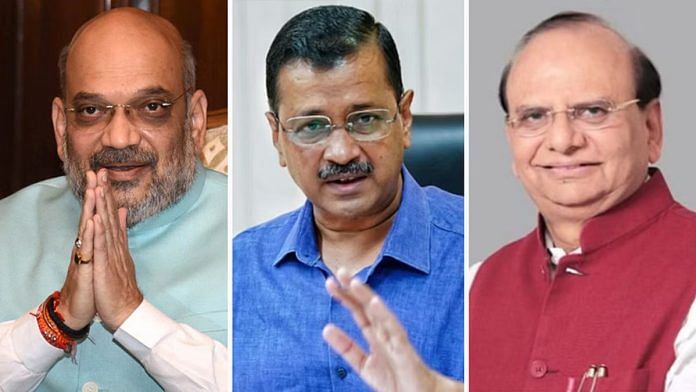Thank you dear subscribers, we are overwhelmed with your response.
It’s been more than two decades, since the Bharatiya Janata Party, which is in power at the union, failed to form a government in Delhi’s legislature. In the last two legislature elections, the Bharatiya Janata Party came with its full might in the election campaign but, the Aam Aadmi Party came victorious as its policies are more people-centric, although the central investigating agencies regularly hold Aam Aadmi Party leaders responsible for many cases of corruption. While introducing the bill, Mr. Amit Shah lists out the reasons for introducing the bill, “ Several important National and International institutions and authorities like the President, the Parliament, the Supreme Court, various constitutional functionaries, foreign diplomatic missions, international agencies, etc., are located in Delhi, and high dignitaries from other nations pay official visits to Delhi and in the national interest of the country, highest possible standards are required to be maintained in the administration and governance of the National Capital Territory of Delhi.”
Bill contravenes the constitution
To easily comprehend the Indian constitution, it had been codified into twelve schedules. In
schedule seven three different lists were set up. List one – union list: have subjects on which only the parliament of India can make laws. List two – state list: have subjects on which state/ union territory of Delhi legislature can make laws (except – if the council of states or upper house of the parliament, passes a resolution on a subject which comes under the state list with 2/3 majority of the present voters of the house declaring the subject to have national importance then the parliament acquired the power to legislate on the subjects listed in the state list). Another exception, only for the union territory of Delhi – entries 1, 2, and 18 which are public order, police, and land respectively come under the union. List three – concurrent list: have subjects on which both state & union territory can make law. Article 239-AA of the Indian constitution deals with special provisions concerning Delhi. In clause(4) of article 239-AA of the constitution explains the role of the Chief Minister as the head to aid & advise the lieutenant Governor, except insofar as under any law, required to act in his discretion. The Bill proposes to constitute a National Capital Civil Service Authority. The Authority members are in the ratio of 2:1 out of the union & Delhi legislature respectively. The Appointment of officers and other staff of the Authority shall be made in consultation with the central government. The Authority shall have the responsibility to recommend the transfers and postings of all Group ‘A’ officers. With the bill
turning into an act, the capacity to which the council of ministers of the Delhi legislature holds the bureaucrats accountable gets corroded. The spirit of democracy lies with the people, and as the bill becomes an act it would break the direct line of authority from the people to their representatives. People hold the executive accountable – the executive holds the bureaucrats accountable – the legislative hold the executive accountable in a democratic country. If the bureaucrats had no direct power hierarchy with the council of ministers of the Delhi legislative assembly, it would break the line of authority & make the union government more powerful, and devalue the Aam Aadmi Party, “people-centric” policies with the union government targeted bureaucratic delays.
These pieces are being published as they have been received – they have not been edited/fact-checked by ThePrint.

